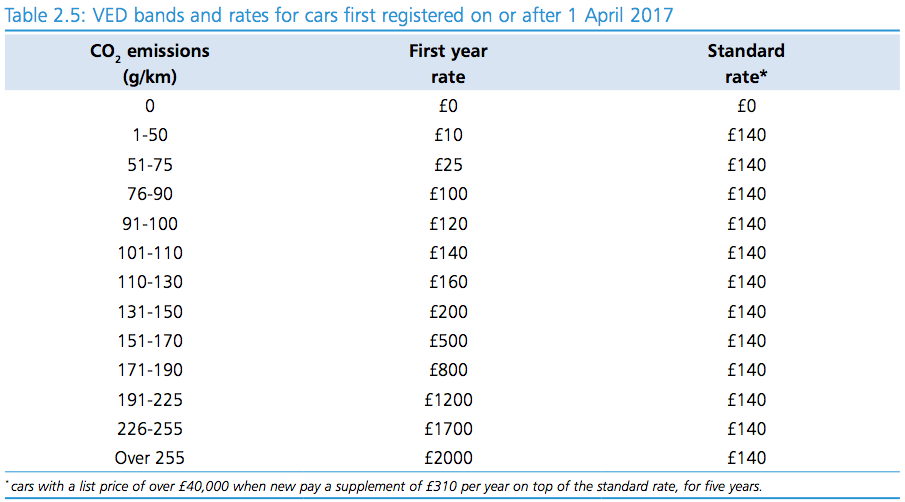George Osborne has announced in his summer budget that new cars will be subject to different vehicle excise duty (VED) bands from 2017.
The new system is still based on CO2 emissions, but only cars emitting 0g/km CO2 will benefit from free road tax.
Apparently, 95% of new cars will fit into a ‘standard’ category, costing £140 per year, while cars that cost over £40,000 new will face an extra £310 per year for the first five years.
Osborne said: “Because so many new cars now fall into the low-carbon emission plans, by 2017 over three quarters of new cars will pay no VED at all in the first year.
“This isn’t sustainable and it isn’t fair. If you can afford a brand new car, including some of the most expensive models available, you can pay no VED. If you can only afford an older second-hand car you have to pay more tax.”
The new VED bands will only apply to new cars from 2017 onwards – Osborne insists no one will pay more in tax for vehicles they already own.
Anyone spending more than £40,000 on a new car will have a pay an additional £310 a year in road tax for the first five years.
That means even electric cars worth over £40,000 new, such as the Tesla Model S, will cost £310 to tax.
Anything with a conventional engine, including hybrids, will cost £450 a year in VED for the first five years if it has a list price over £40,000.
Another big change is that the money raised through VED will go directly back into improving the roads.
Osborne added: “I will return this tax to the use for which it was originally intended. I am creating a new roads fund from the end of this decade – every single penny raised from VED in England will go into that fund to pay for that sustained investment our roads so badly need.”
The Chancellor also announced he would consult on the current MOT system, looking at increasing the age at which cars and motorbikes require their first test from three to four years.
Fuel duty will also remain frozen at the current rate.

